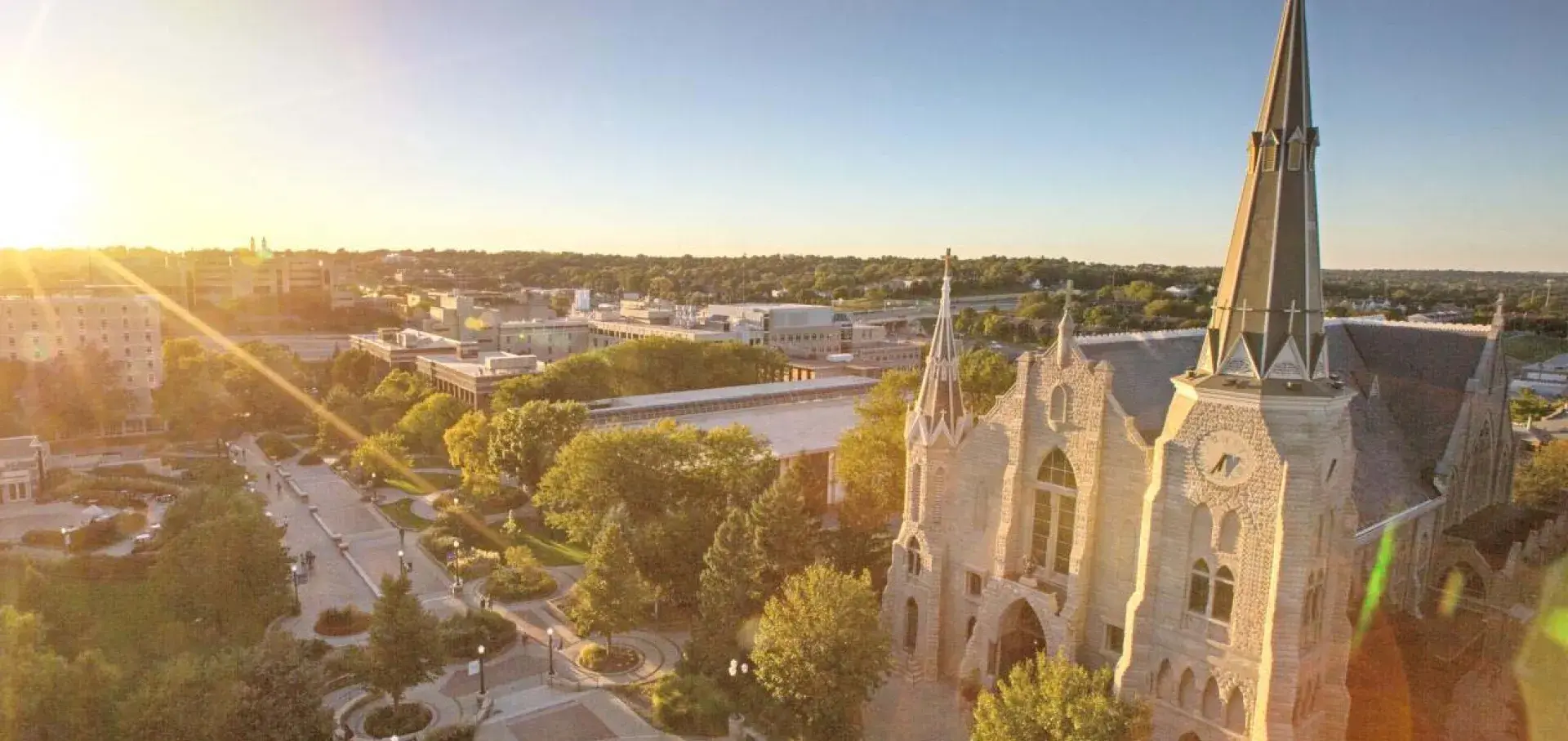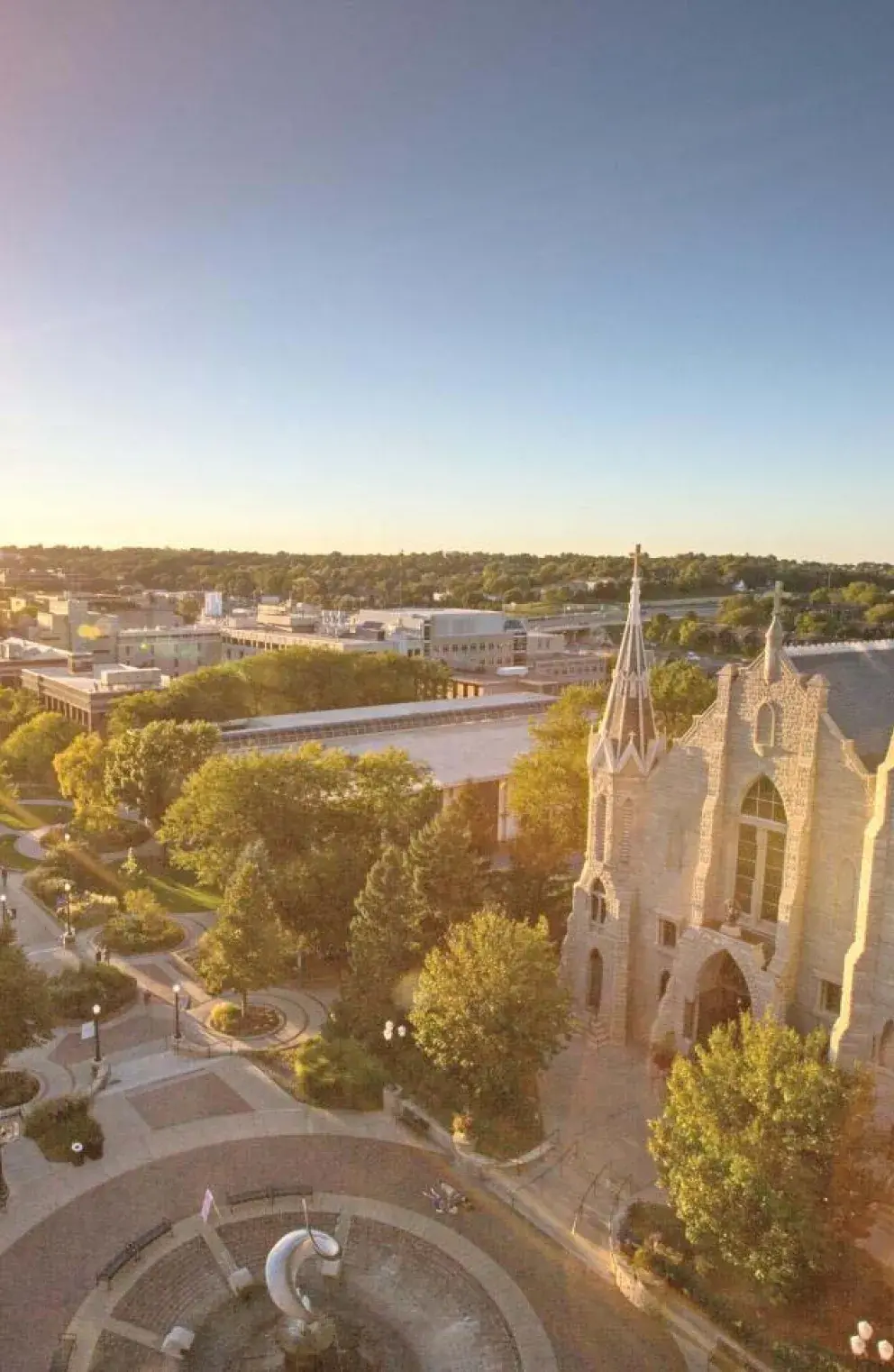
Biomedical Sciences (Master of Science)
Creighton University’s Master of Science in Biomedical Sciences program will prepare you for a rewarding career as a scientist, educator, administrator or consultant. In this program, you’ll complete an in-depth research project in the School of Medicine that will teach you to think creatively, independently and ethically. Through your thesis work, you’ll learn to analyze data and communicate your findings.
In keeping with the Jesuit tradition of educating the whole person, the Master of Science in Biomedical Sciences program develops students as well-rounded individuals. You’ll be inspired to think critically about pressing topics, engage in conversations about research ethics and spark your creative inquiry. Research at Creighton is mission-driven, making your work part of a larger effort to serve others and create a more just world.
Your research passions are our priority
The master’s in biomedical sciences program is highly personalized. You’ll have an individualized plan of study and opportunities for both theoretical and applied research in your field. Possible areas of study include:
- Cancer biology
- Neuroscience
- Auditory and vestibular research
- Biochemistry and chemical biology
- Cell and developmental biology
- Molecular biology and gene regulation
- Physiology
Your professors will work closely with you—guiding your studies and acting as teachers, advisors and mentors throughout your degree and career. Many of our faculty members collaborate and work with students long after they earn their degree.
Creighton's state-of-the-art facilities, such as the Biomedical Sciences department's core facilities and Integrated Biomedical Imaging Facility, provide hands-on experiences that will help you develop skills to differentiate you after graduation.
Join a growing field of biomedical research scientists
Biomedical science is a growing field, and research scientists are in high demand. Job opportunities for biomedical scientists are expected to grow 13% over the next decade.
A graduate education is non-negotiable for advancement in the field—29 percent of biomedical scientists have a master’s degree and 62% have a doctoral or professional degree. The national median annual salary for a biomedical scientist is $80,828.
Source: Economic Modeling Specialists International (EMSI) — January 2018
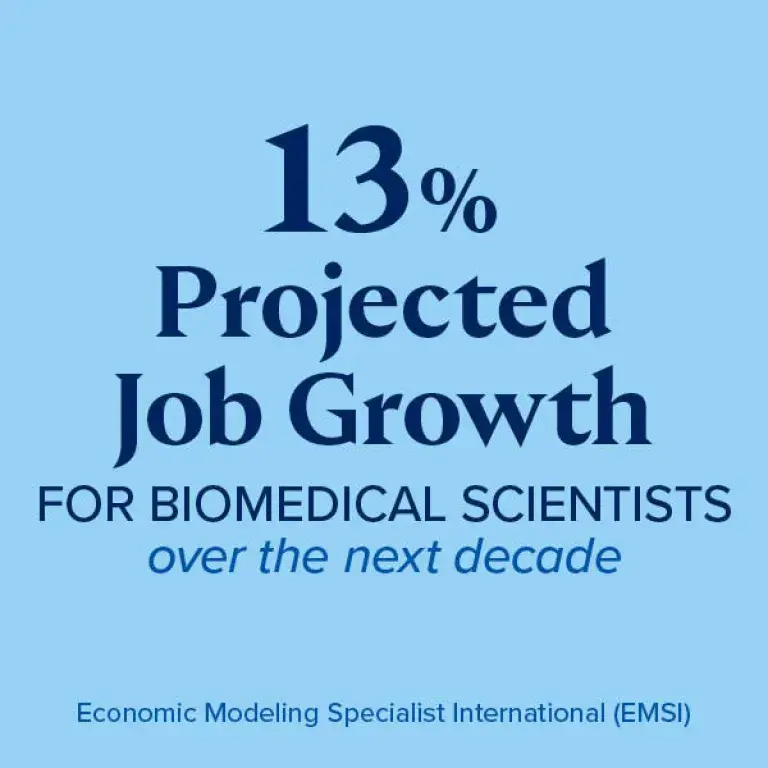
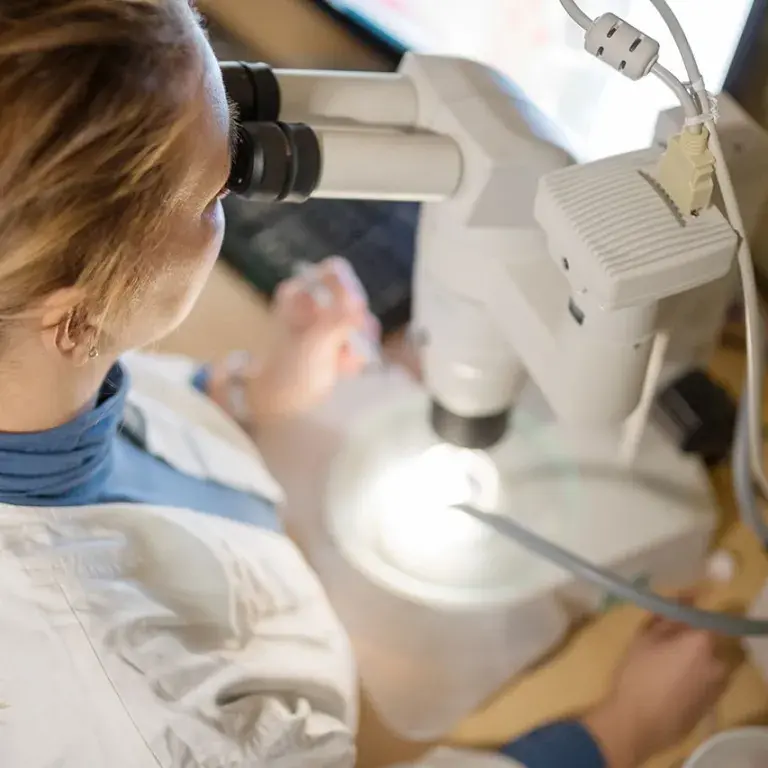
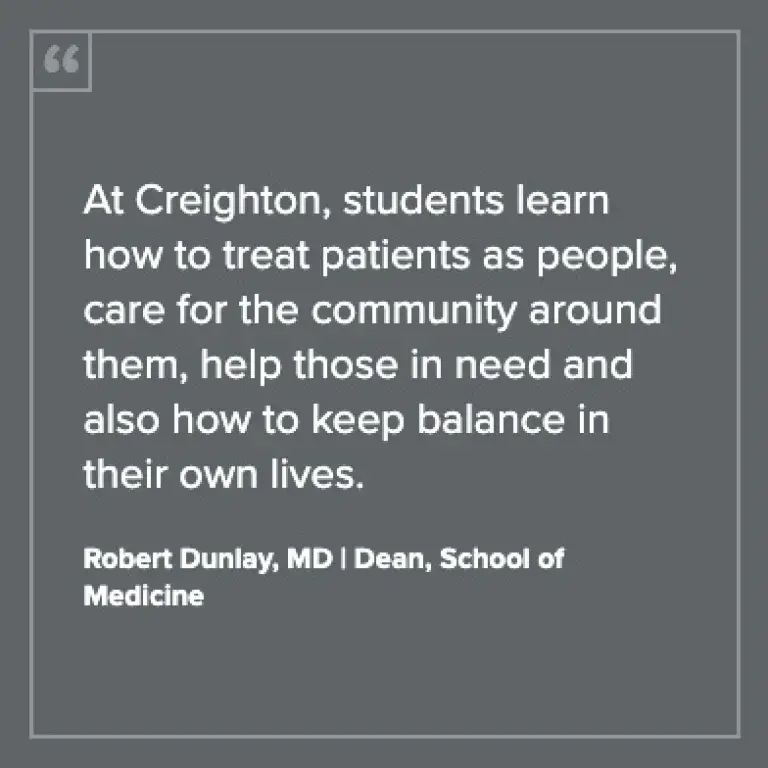
Program Details
Program Goals and Curriculum
Creighton’s MS in Biomedical Sciences program prepares individuals for research careers as biomedical scientists in academia, institutes or industry. Students work with advisors and an advisory committee to formulate an individualized plan of study based on interests and goals. This program can be completed in as little as two years.
To earn this biomedical sciences degree, you must complete 30 credit hours:
- Required Courses
- Fundamentals of Cell and Molecular Biology
- Responsible Conduct of Research (Ethics)
- Ongoing Courses
- Seminar (every semester)
- Journal Club (every semester)
- Directed Independent Research (3-6 credits per semester)
- Electives (Two or More)
- Degree Completion Course: Master’s Thesis
Master of Science candidates must present and defend a thesis to complete the program
Faculty
Creighton’s Biomedical Sciences faculty are experts in a variety of fields, which allows them to personalize programs to individual students’ needs and interests. Their research covers a wide range of structural and functional biology, and they encourage a collaborative, interdisciplinary approach between departments and research partners.
PhD Option
Doctor of Philosophy with a Major in Biomedical Sciences (90 credits)
- The courses required for the master’s degree serve as the foundation for the PhD program. Additional research and a doctoral dissertation are required to complete the doctoral program.
- Available on campus.
Admission Requirements
To be considered for admission to the MS in Biomedical Sciences program, applicants must:
- Complete an application
- Possess a bachelor’s degree in a related field with 3.0 GPA or higher
- Provide official transcripts from all educational institutions attended. Read more about sending transcripts
- Include a resume or curriculum vitae
- Submit a personal statement
- Submit three letters of recommendation from persons other than friends or family members
A personal interview may be requested in addition to the above requirements. The interview may be conducted in-person or virtually.
International students are welcomed into this program and F-1 visas will be supported upon admission.
International applicants must:
- Meet English language proficiency requirements
- Complete and submit a Certification of Available Finances Form through the Global Engagement Office if admitted
Tuition & Financial Aid
Tuition rates change in the fall of each year. Visit our financial aid site for more details.
Tuition Remission
All students in Creighton’s Master’s in Biomedical Sciences program have their health insurance paid for and receive tuition remission.
Have questions? Email or call a friendly financial specialist at 402.280.2731 for any additional questions you may have.
Dates and Deadlines
The table below details the enrollment deadline and starting date of courses for the current academic year. If you have any questions about dates, deadlines, or application materials, please contact an enrollment specialist for personalized assistance.
ON CAMPUS
START CLASSES IN | INTERNATIONAL APPLICANTS AND SCHOLARSHIP CONSIDERATION APPLY BY | GENERAL DEADLINE APPLY BY |
August | March 1 | July 1 |
January | August 1 | December 1 |


